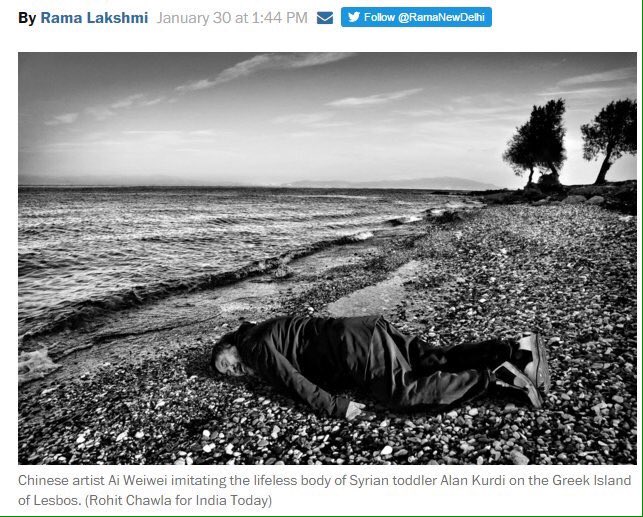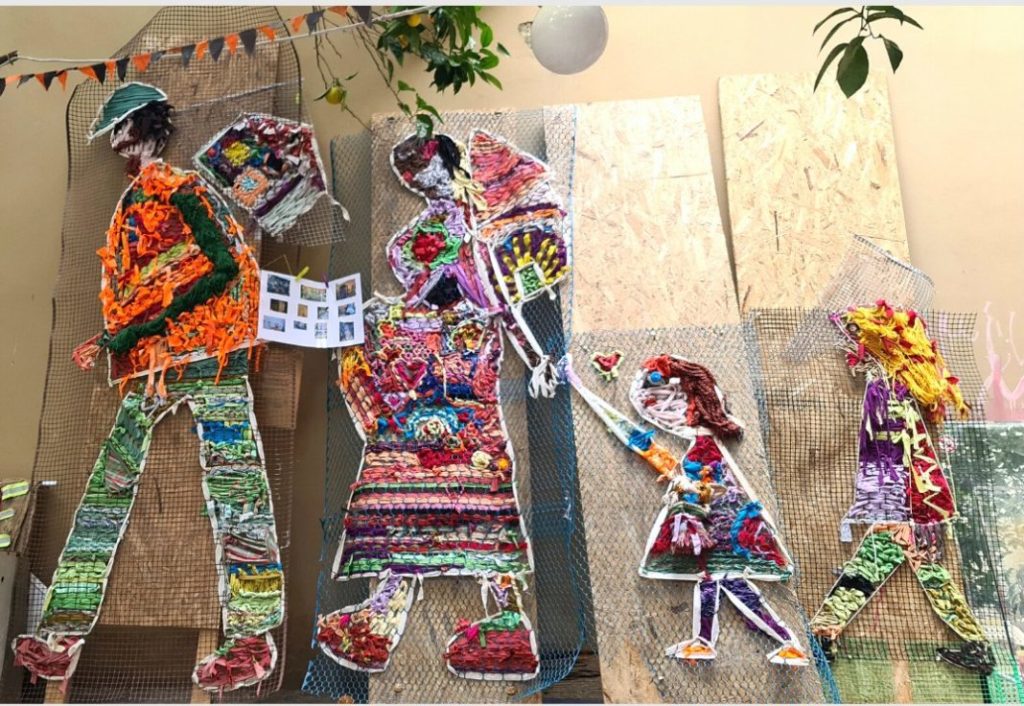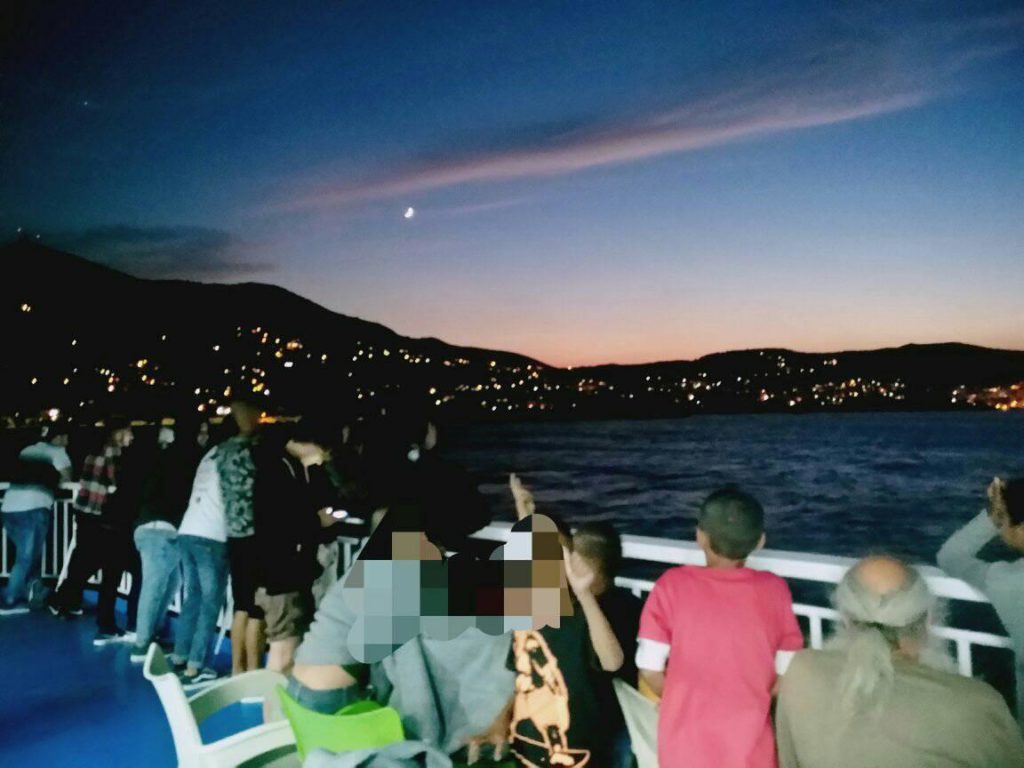My relationship with Lesvos began almost simultaneously with the “refugee crisis”. In 2016, I was already living in Syros, working as a teacher, but I was going very often to Athens to meet my then boyfriend. There we met at the port of Piraeus at E1 and the stone warehouse together with thousands of refugees, migrants and solidarity activists and tried to help as much as we could. I remember just going there and not having to think about what to do or be interested in organizing. This was because children would run towards me and take me into their company to sing, dance, draw, help them catch the ball that had fallen into the sea…
My friend had studied at the History and Social Anthropology Department in Mytilene and on the occasion of the crisis he would tell me stories about Mytilene, the University, anthropology and anthropologists. Papataxiarchis, Paradellis and other important people framed our discussions and their research, their words…were at the heart of our own quests and concerns. In the midst of all this we decided to try to live together on Lesvos. I applied for the master’s degree, was accepted and in the spring of 2018, I was posted to Lesvos. In the summer of 2018, I found myself in Mytilene, looking for a house, looking for a way to combine studies, work, children, activism, love… Unfortunately, I found neither a house that I could “afford” nor a job in a school in Mytilene so that I could attend my Master’s degree and at the same time bring my children to and from schools etc…
So, putting myself for a while in the position of immigrants, immigrant and myself in a place I had ideally created in my mind, I found myself unable to survive in my utopia. For a few months I went back and forth on the boats, meeting people who were persecuted, people in solidarity, listening to stories, seeing the whole world in motion before my eyes. I was able to attend only one postgraduate course with Mr. Paradellis, the first of the semester, and after I said goodbye to any hope of survival in Lesvos, I went back to Syros, crying all over the sea, feeling uprooted from my dreams and the place I had so beautifully created within myself.
Seeing now after four years a summer course in Lesvos and even related to anthropology, I didn’t know if he was looking for me or I was looking for it. Having caught anthropology now “from the beginning” , finishing the second year of my undergraduate degree at Panteion, I may be slowly fulfilling a little bit of my other desires but my desire to live in Lesvos remains unfulfilled. These forthcoming fifteen days is a gift to me. Maybe not as much as I would like and for as long as I would like but certainly a great gift.
In the images of this section, I saw familiar things: the Konzerthaus Berlin to which Ai Weiwei transported 1400 life jackets from Lesbos to make an installation with a strong message to Europe and the world.

He did not hesitate to lie on the beach in the same position where dead refugee children are lying on the shores of Lesvos and beyond.

I also saw images from the history of Lesvos… its liberation from the Turks in 1912, its refugee past… people in boats after the Asia Minor disaster and the peace sign formed with 3000 life jackets of refugees on a hillside on New Year’s Day 2016.
These images, these works of art (some spontaneous, others more studied) travel to the world through the internet, social media, the news… Lesvos in recent years has been “the front line”, as Papataxiarchis emphasizes, and I strongly feel his realization that this front line can become an obsession… one can feel stuck to it, feel the longing to return to the voluntary imaginary. I don’t know if I belong to this category, but certainly the longing over the years is there and the nostalgia for all that I experienced and all that I didn’t manage to experience in Lesvos is in my suitcases starting this summer course.

This journey is captured in a contemporary animated installation that reflects a side of reality that concerns us all. “People carrying their home” is a participatory project – with reuse and weaving – in which more than 150 people took part, refugees, locals, residents, artists and tourists who have been on the island of Lesvos over the past months and passed through Lesvos Solidarity – Mosaik Support Center.
So, I am carrying my house and, in this house, in a big corner, is Lesvos. That is why I choose this work of art to show you and to say that the refugee has always existed and will always exist. You can feel like a refugee even in your “country” when you have miles of beaches and no gasoline to visit any of them, when you can’t get your children an ice cream, when you are afraid of the justice system that releases rapists and child killers. Refugees are not something “foreign”, we are us in another time and space.

Dear Eleni, Thank you for this powerful text and narrative! It is very inspiring, and I hope you will be able to use the summer course to engage with Lesvos in rewarding ways. I am also inspired by how you demonstrate that life and art and research – or maybe just everything we do – is intertwined, impossible to separate. It used to be seen as problematic to bring own life experiences into research, yet now it seems to be an understanding in many areas how ‘world-makng’ is fuelled by inhabiting the questions and themes that we engage with. Looking forward to seeing your work evolve!